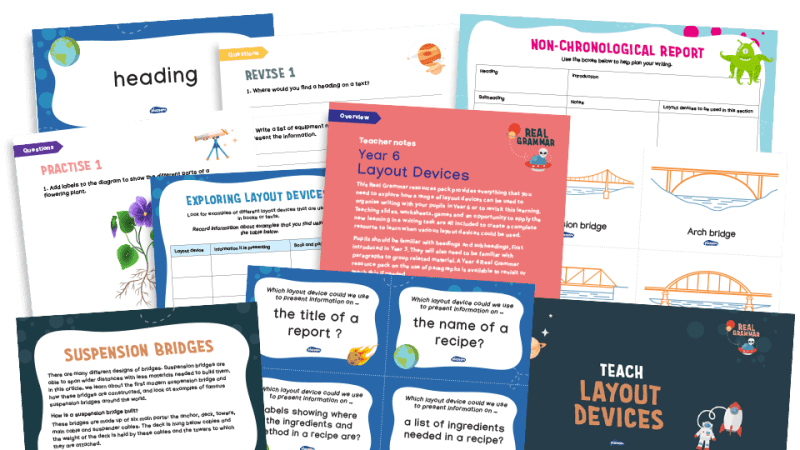KS3/4 poetry – Why it still has a place on the English curriculum

Those fearing that the study of poetry at secondary school may have been read the last rites, courtesy of Ofqual, can rest easy, says Zoe Enser…

- by Teachwire
- Classroom expertise and free resources for teachers

Last year, just as people were dealing some of the most significant issues of COVID, Ofqual published its response to a consultation on exam arrangements for 2021.
They had been tasked with considering how assessment should reflect the learning that had taken place during this difficult period of time, and how students could be given opportunities to demonstrate their learning in the fairest possible way.
One proposal put forward in this consultation was the removal of certain topics from the final exams – including the possible removal of the seen poetry aspect from the English Literature GCSE exam. Shakespeare, it seemed, would stay. But all other options, including poetry, were potentially off the table.
No more Blake?
When this suggestion landed in the public domain, few seemed to bemoan the loss of the modern prose or drama text, but there was significant outcry regarding the poetry option. Many parents, teachers, writers, and poets – including the Poet Laureate, Simon Armitage, no less – declared that poetry must be saved, and that its disappearance from these assessments could spell its demise. No more Duffy. No more Blake. No more Owen, and certainly no more Angelou.
Others, meanwhile, appeared to welcome the possibility. Reflecting on their own relationship with poetry at school, some expressed a sense of relief that students may no longer need to struggle through dusty tomes in order to create meaning from a tangle of nonsense.
Whatever your own personal preferences regarding poetry, I would like to reassure you here that, to paraphrase Mark Twain, rumours of its death have been greatly exaggerated. It is very much alive and well, and embedded in the curriculum at KS3 and KS4.
Poetry remains a key unit in the learning sequence of many schools. Poetry units dealing with family, relationships, identity, conflict and everything in between provide perfect opportunities to hear from a range of different voices.
Regardless of whether specific poems, or even the poetic form itself are explored in an exam at the end of Y11 (and again, to reassure people, poetry is still very much part of the literature syllabus), English teachers are fully aware that the study of poetry remains an important aspect of our subject. This means you will continue to find Duffy, Owen, Blake, Angelou and a whole host of others on today’s curriculum.
A link to history
There are many reasons for this, perhaps the first being that teachers of English are well aware that poetry is one of our earliest forms of expression, with links to oral traditions and narrative development going back centuries.
Stories of Gilgamesh, a hero of ancient Mesopotamia, were collected in an epic poem which was subsequently translated and transformed by different cultures over time. Elsewhere, the poems of Ovid and Homer helped to ensure the heroes and villains of old still inform today’s modern world.
Poetry provides a link to the history of our language, as well as a path we can trace back to our earliest understandings of the world and of art.
That’s not to say that all English teams are studying Gilgamesh or Homer, but in every English curriculum you will find poems that seek to help young people explore different aspects of our humanity, while also being enjoyable for their simple aestheticism. Just as we may like looking at a painting or watching a singer perform, poetry is an expression of our artistic natures – which is something that many teachers continue to value, and wish to pass on to their students.
Poetry also provides students with opportunities to explore language in a way that’s less constrained by the standard rules of grammar and syntax that can accompany the crafting of a prose text. With poetry, they can play around with the explicit and implicit meaning of individual words, without necessarily having to worry about right and wrong or how long the redrafting is likely to take.
Students can further experiment with the order in which words are presented, and consider how meanings may change through the repositioning of punctuation, by breaking off lines mid-way through or simply running into the next idea. It’s somehow less threatening to examine different language possibilities through poetry, where there will usually be fewer worries around corrections and richer possibilities for crafting meaning at a micro level.
‘Incidental’ uses
We should also remember that while units exploring individual poets or themes are still included in most curriculums, so too are more ‘incidental’ uses of the poetic form. Poetry can be used in myriad ways, so that even if a scheme doesn’t include the word ‘poetry’ in the title, teachers can still be enriching, challenging, and scaffolding students’ learning via the medium of poetry in their lessons.
Poems can offer a great deal, due to their brevity. Opening a discussion on themes or aspects of language with a poem is an excellent method by which to prepare students for the study of a longer text. Poems often contain rich examples of metaphors and symbolism, or patterns of language and rhythms that exemplify elements of literature that appear elsewhere.
Seeing examples of these will enable students to carefully consider the language choices a writer makes, including their use of punctuation and internal rhymes. The more students are exposed to great literature, the better.
For some, the idea that poems aren’t part of a distinct unit will continue to ring alarm bells. The assumption can be that unless poetry is given a specific place within the curriculum or on the final assessment, its importance will be lost – nudged out in favour of more high-stakes content and becoming merely a conduit for other things, if it even appears at all.
Yet the space we have at KS3 means teachers can make the most of those opportunities, just as they do with spoken language.
A simple joy
Let’s also not forget that there are many teachers sharing poems for the simple joy it brings them, and that they’re often keen to gift this to their students. Equally, a number of students will be seeking their own poems to share with their peers and teachers, using them as a form of expression just as so many great writers have done before them.
The opportunities presented by poetry are immense, and English teachers know it. Visit their lessons, and you’ll find poetry strutting its stuff on stage alongside Shakespeare, woven into the pages of narrative prose, and flowing daily from students’ mouths and pens.
That said, the future of poetry looks set to be a topic that will come to the fore again, particularly around Ofqual’s consultation on topic selections for the 2022 exams, and the possibility that poetry could once more become a least preferred option.
Don’t worry, though – poetry is far from dead. Instead, it’s in very safe hands, its mutable form continuing to delight, sadden, enrage, frustrate, confuse, and enlighten students in schools everywhere. And that’s unlikely to change any time soon.
Zoe Enser is a specialist advisor for English at The Education People; for more information, visit theeducationpeople.org or follow @greeborunner.







